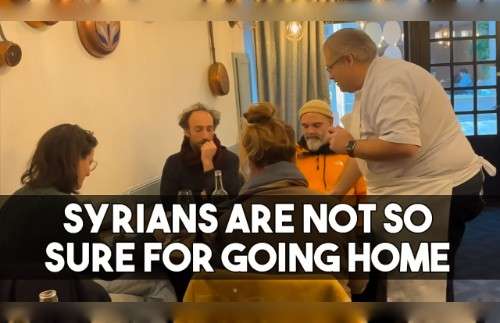A rights group says the lack of jury in national security cases will deprive defendants of a fair trial.
By Yu Fat, Raymond Cheng and Cheryl Tung for RFA Cantonese

Pro-democracy media magnate Jimmy Lai will plead not guilty to ‘colluding with foreign forces’ under Hong Kong’s draconian national security law, court documents revealed on Monday, as a U.S.-based rights group called on the government to drop charges against 47 former lawmakers and activists for “subversion.”
Lai’s plea was revealed at a case management hearing in Hong Kong on Monday. Six other former staff members — former senior editors and columnists at his now-defunct Apple Daily newspaper — said they would plead guilty.
Lai’s trial will have no jury, and will be held instead before a panel of three national security judges vetted by the government.
Lai appeared in court on Monday, appearing relaxed in a blue suit, waving and smiling to friends and relatives in the public gallery, and talking from time to time with his daughter, guarded by three prison guards at all times.
Meanwhile, veteran democracy activist and former organizer of the now-banned candlelight vigils for the victims of the 1989 Tiananmen massacre Albert Ho was released on bail after a year behind bars.
Ho, 70, recently also completed four “illegal assembly” sentences handed down in connection with June 4th memorial activities in 2020.
He is still awaiting trial for “incitement to subvert state power” under the national security law, and was bailed for H.K.$700,000 and a H.K.$400,000 surety.
Ho is required to report to his local police station three times a week, and could be redetained at any time on remand, and is barred from making comments deemed harmful to “national security” on any platform.
‘Subversion of state power’
The announcement came to cheers among Ho’s supporters in court.
Ho’s former colleagues at vigil organizers the Hong Kong Alliance in Support of Patriotic Democratic Movements of China Lee Cheuk-yan and Chow Hang-tung also stand accused of “inciting others to organize, plan, implement or take part in the subversion of state power,” and remain behind bars.
Ho and Lee have said they plan to plead not guilty and stand trial, while Chow has requested a preliminary hearing, scheduled for Sept. 2.
The subversion of state power refers to “overthrowing or destroying the fundamental system of the People’s Republic of China established by the Constitution of the People’s Republic of China, or overthrowing the central government organs of the People’s Republic of China,” according to the national security law.
The New York-based Human Rights Watch (HRW) called on the Hong Kong authorities on Monday to immediately drop the “politically motivated” charges against 47 former opposition lawmakers and democracy activists, and release them.
Describing the national security law as “abusive,” the group said five of the defendants including the founder of the 2014 Occupy Central movement Benny Tai and former opposition lawmaker Au Nok-hin could face life imprisonment, as they had been flagged by the prosecution as “major organizers” of a democratic primary election that aimed to field candidates who could win a majority in the 2020 Legislative Council (LegCo) elections.
The election was postponed by the government, mass arrests of opposition politicians followed, and the government rewrote the election rules to ensure that only supporters of the ruling Chinese Communist Party (CCP) now hold seats in LegCo.
Contempt for democracy, rule of law
The 47 lawmakers, protest leaders, unionists, and academics, who range in age from 24 to 66, are being prosecuted for “conspiracy to commit subversion” due to their peaceful political activities, HRW said.
“Hong Kong’s biggest national security case is wrapped in legal language, but it’s just part of the Chinese government’s relentless efforts to smother Hong Kong’s democracy movement,” HRW’s senior China researcher Maya Wang said in a statement on the group’s website.
“The very real threat of life in prison for peaceful activism shows Beijing’s utter contempt for both democratic political processes and the rule of law,” she said.
Subversion and other crimes established by the national security law, which the Chinese government imposed on Hong Kong from July 1, 2020, are overly broad and arbitrarily applied, the group said.
It said denial of a jury trial would deprive defendants of their right to a fair trial. National security trials may also be held behind closed doors if the authorities decide that state secrets are involved.
Many of the 47 defendants have been detained for nearly 18 months since police charged them in late February 2021, HRW.
Observers have pointed out that the majority of guilty pleas are coming from those denied bail, and could reflect the defendants’ wish to earn a sentence reduction of roughly 33 percent, as well as avoiding the grueling process of attending court day in, day out during a lengthy trial for which they must rise at the crack of dawn and spend hours in cramped holding cells and prison buses with little food or rest.
Translated and edited by Luisetta Mudie.
Copyright © 1998-2020, RFA. Used with the permission of Radio Free Asia, 2025 M St. NW, Suite 300, Washington DC 20036. https://www.rfa.org













